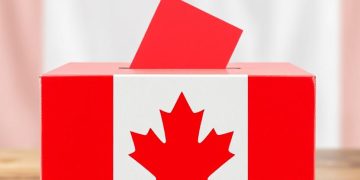As Canadians head to the polls, international observers are closely monitoring the outcome, given its potential impact on global relations and trade.
Economic Relations with the United States
Canada faces significant economic challenges, including new tariffs imposed by U.S. President Donald Trump on Canadian exports. Additionally, President Trump’s remarks suggesting Canada could become the United States’ 51st state have fueled concerns about national sovereignty. The future Canadian government is expected to address these evolving dynamics with its largest trading partner.
China’s Interest in Strengthening Ties
China has indicated it hopes the Canadian election could open the door to improved relations. Beijing’s ambassador to Canada recently stated that China seeks a partnership to counter what it described as “American bullying.” However, Canadian leaders have expressed caution. Liberal Party leader and current Prime Minister Mark Carney described China as a major security threat, while Conservative leader Pierre Poilievre referred to China as a disruptive global force. Relations remain tense following past diplomatic conflicts, including the detention of two Canadians in China in 2018 after the arrest of Huawei executive Meng Wanzhou in Canada.
Potential Lessons for the United Kingdom
Political observers in the United Kingdom are also closely following the Canadian election. Canada’s shift in political momentum—from a trailing Liberal Party to a leading position—has drawn comparisons to political dynamics in the UK. Both Prime Minister Carney and Conservative leader Poilievre have addressed issues such as tariffs and economic resilience in ways that some analysts suggest could offer strategic lessons for British politicians.
Impact on India-Canada Relations
The election outcome may also influence Canada’s relationship with India. Ties between the two countries have been strained following allegations of Indian involvement in the 2023 killing of Sikh separatist Hardeep Singh Nijjar. Both leading Canadian parties have outlined different approaches to managing bilateral relations and concerns over extremism. With a large Indo-Canadian population and significant economic ties, the direction of future relations is of particular interest to Indian policymakers and media.
Australia’s Perspective on Potential Cooperation
In Australia, interest in the Canadian election focuses on opportunities for greater cooperation. Analysts suggest that Canada and Australia, both resource-rich democracies and members of the Five Eyes alliance, could expand their bilateral ties, particularly if the next Canadian government seeks stronger partnerships outside the United States. Discussions around a potential CANZUK alliance—linking Canada, Australia, New Zealand, and the United Kingdom—have resurfaced during the campaign.
Challenges Ahead in U.S.-Canada Relations
The next Canadian prime minister will face complex challenges in managing relations with the United States. President Trump’s comments about Canada and ongoing trade tensions have raised uncertainties. Although President Trump has not officially endorsed a candidate, his public comments about the election and the candidates suggest that whoever forms the next government will need to navigate a potentially contentious bilateral relationship.
The final outcome of the Canadian election is expected to influence not only domestic policy but also Canada’s position in global trade, diplomacy, and security alliances.
Stay current with supply chain news on The Supply Chain Report. Free trade resources are available at ADAMftd.com.
#CanadaElection #FederalElection #GlobalPolitics #Election2025 #CanadianPolitics #DemocracyInAction #WorldWatchingCanada















